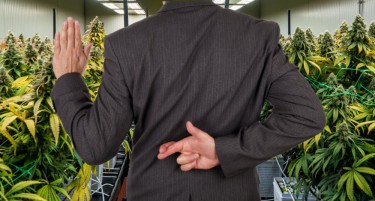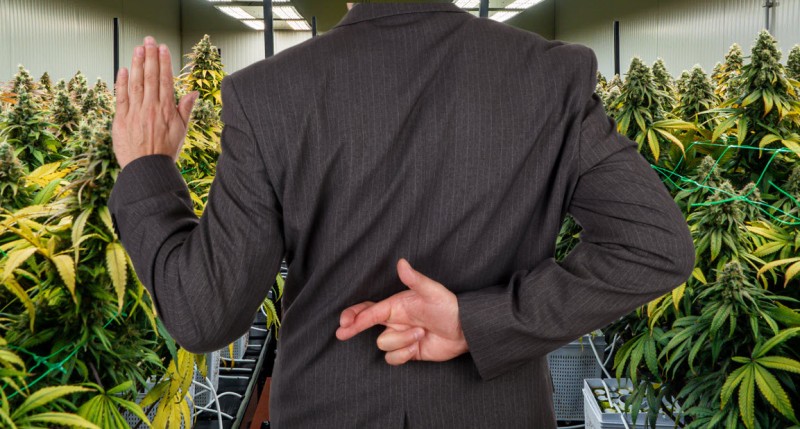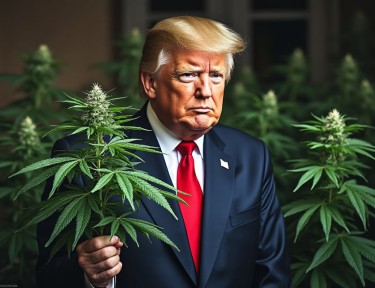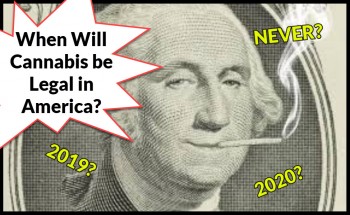
The Rescheduling Ruse: Why I Told You So
In a move that surprised absolutely no one who's been paying attention, the White House recently announced it has "no action planned" on marijuana reform. Yes, the same marijuana reform that President Trump enthusiastically backed on the campaign trail just weeks before Election Day.
The writing was on the wall all along, folks. I've been telling you for months that the much-hyped rescheduling of cannabis from Schedule I to Schedule III was nothing more than political theater – a carefully choreographed dance designed to generate headlines without delivering substantive change. And here we are, with yet another administration putting cannabis reform on the back burner while millions of Americans continue to live under the shadow of failed prohibition policies.
Don't get me wrong – I'm not here to play political favorites. This isn't a red versus blue issue. The Biden administration dangled the same carrot, initiating a rescheduling process that conveniently stalled due to "complications" with DEA hearings. Different players, same game.
Let's take a step back and examine what's really happening here, because the truth about cannabis reform in America is both simpler and more complex than most people realize.
The Political Shell Game
Trump's pre-election cannabis conversion was quite the spectacle, wasn't it? Suddenly, the man who selected Jeff "Good People Don't Smoke Marijuana" Sessions as his first Attorney General was voicing support for rescheduling, banking access, and even Florida's legalization initiative.
But as CNN recently reported, "no action is being considered at this time." The honeymoon didn't even last through the first dance. The administration's priorities lie elsewhere – immigration, government spending, foreign policy – while cannabis reform gets shelved alongside countless other campaign promises.
Interestingly, CNN did note that Trump and his transition team attempted to include cannabis banking protections in December's government funding resolution. This behind-the-scenes effort suggests at least some genuine interest in the issue, but hardly qualifies as the bold reform millions of voters were led to expect.
This pattern should feel familiar. The Biden administration made similar overtures, with the president announcing pardons for federal marijuana possession offenses and directing an administrative review of cannabis scheduling. That process dragged on for over a year, with the DEA repeatedly delaying final action. Biden got the headlines; cannabis users got nothing.
The harsh reality? Cannabis reform makes for good campaign fodder, but terrible governance priorities. Once elected, the political calculus changes dramatically. The motivation to deliver evaporates when the votes are already counted and the special interests start calling in their favors.
The DEA: Reform's Eternal Gatekeeper
At the heart of this perpetual delay lies the Drug Enforcement Administration – an agency whose very existence depends on the continuation of the drug war. Expecting the DEA to facilitate cannabis reform is like asking a turkey to vote for Thanksgiving.
The DEA has mastered the art of procedural obstruction. Under Biden, they scheduled hearings, requested extensions, and effectively ran out the clock. Under Trump, they appear poised to do absolutely nothing, perhaps not even bothering with the pretense of consideration.
The pattern becomes clearer when you look at Trump's cabinet picks. His nominee to lead the DEA, Terrance Cole, has previously voiced serious concerns about marijuana dangers and linked its use to higher suicide risk among youth. His HHS general counsel nominee, Mike Stuart, is so staunchly anti-cannabis that prohibitionist groups openly celebrated his selection.
Even Robert F. Kennedy Jr., who previously supported legalization, has walked back his stance since being confirmed as HHS Secretary, stating he's "worried about" high-potency marijuana and deferring to the DEA on rescheduling.
When you stack the regulatory deck with cannabis skeptics, you've telegraphed your true intentions no matter what you said on the campaign trail.
The Revolution Continues State by State
Here's what I've been saying all along: meaningful cannabis reform was never going to come from the White House, regardless of who occupied it. The DEA will never willingly relinquish its power, and politicians will always prioritize easier wins over controversial reforms.
The only real path forward is through Congress completely removing cannabis from the Controlled Substances Act. Full stop. No rescheduling, no administrative reviews, no half-measures. Cannabis needs to be descheduled entirely, returning regulatory authority to the states where it belongs.
But while we push for that goal, the real revolution continues on two fronts.
First, state-by-state legalization marches forward. Despite federal inaction, 38 states have medical marijuana programs, and 24 states plus DC have legalized adult use. Each new state that joins the ranks weakens prohibition's grip and demonstrates the failure of federal policy.
Second, and perhaps more powerful, is what I call "mass defiance of an unjust law." Every day, millions of Americans peacefully consume cannabis in direct violation of federal law. They grow it in their homes, share it with friends, and build communities around it. This civil disobedience at scale is perhaps the most effective weapon against prohibition.
The federal government simply doesn't have the resources to enforce cannabis prohibition against a population that increasingly rejects it. When enough people break an unjust law, the law itself becomes unenforceable.
The Sticky Bottom Line
I hate to say I told you so, but... I told you so. The rescheduling promise was never going to materialize, regardless of who won the White House. It was a political mirage, designed to attract voters while requiring minimal commitment.
But don't mistake my cynicism about federal action for pessimism about our cause. Cannabis reform is happening – it's just happening from the ground up rather than the top down. Every state that legalizes, every municipality that decriminalizes, every voter who demands change, and yes, every person who peacefully consumes despite prohibition is part of this unstoppable movement.
The lesson here is simple: Don't put your faith in presidential promises or administrative processes. Put it in your local ballot initiatives, your state legislators, and your own power to reject unjust laws through peaceful non-compliance.
Cannabis prohibition is dying, not because presidents commanded it, but because we the people have decided it must end. That's the real power in our democracy – not the fleeting promises of politicians, but the sustained will of the citizens.
So next time a candidate promises to fix cannabis laws, remember this moment. Then go out and fix them yourself, one vote, one state, and one act of principled defiance at a time. That's how real change happens in America, and that's how we'll finally end cannabis prohibition once and for all.







